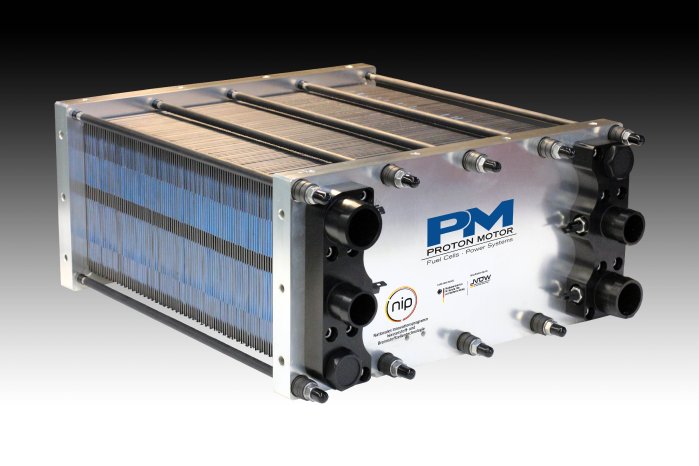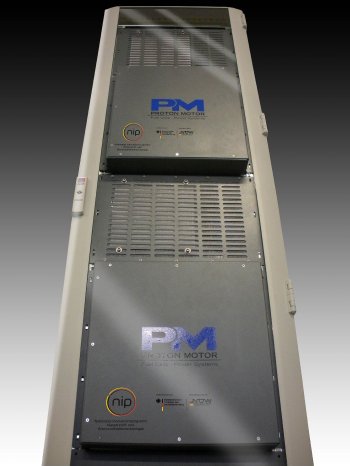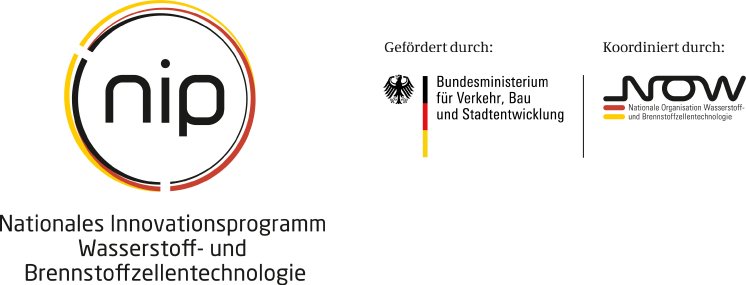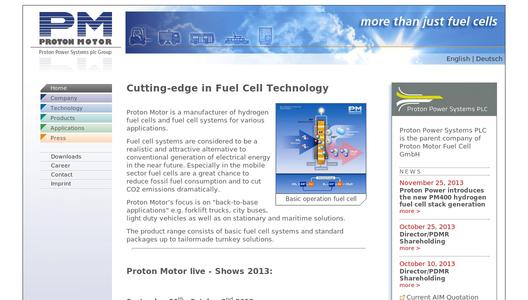In development, the focus was on reducing costs, simple installation and long service life in particular. This means the material costs per kW have been significantly reduced in comparison to the previous stack generation, whilst the power density has been increased at the same time. Over 5,000 operating hours have already been realised at the test facility with very promising results. Running times of far in excess of 10,000 operating hours at a constant output of >80% of the starting power can be expected.
In addition to the fuel cell stack, the associated system peripherals were also tested and implemented as part of a development project supported by the NOW
(National Organisation Hydrogen and Fuel Cell Technology). Here, the priority was to ensure simple integration into each customer application, as well as to reduce system complexity in terms of future production costs. The new concepts were successfully implemented, so that savings in pure material costs (in terms of stack power output) of over 65% were achieved compared to current products. The development stages in terms of simplified system installation and the service life tests will continue to be scrutinised in follow-up projects.
The project manager, Mr Hermann Seim, says: 'With this new stack generation, we have taken a large and successful step into new power classes. In combination with our wealth of experience in multi-stack systems, scales of up to 250 kW in an overall system appear to be both problem-free and realistic.
In this development project, our particular focus was the reduction of system complexity and the use of long-proven components to generate a high level of reliability even at the development phase. As the only German company with our own in-house production of hydrogen fuel cells and systems in this power class, we see here a very good basis for industrial stationary and mobile applications of emission-free energy supply.'




